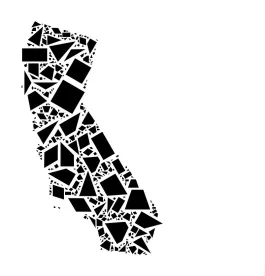On August 21, 2023, the California Supreme Court ruled that business-entity agents could be liable for violations of the Fair Employment and Housing Act (FEHA) with respect to individuals who were not their employees. This holding applies to business-entity agents that have at least five employees and which carry out FEHA-regulated activities on behalf of an employer.
The Case
In the case at issue, Raines v. U.S. Healthworks Medical Group (Case No. S273630), plaintiffs Kristina Raines and Darrick Figg separately received job offers from a community services organization and a fire protection district. However, each individual’s prospective employer required them to complete a preemployment medical screening performed by a third party, Defendant U.S. Healthworks Medical Group (USHW).
USHW’s medical examinations included questions that had no bearing on the applicant’s ability to perform job-related functions, as required for the medical examination of a job applicant under FEHA. Plaintiff Raines declined to complete the questions in the medical screening that had no bearing on her ability to perform job-related functions, and her job offer was ultimately rescinded by the community services organization. Plaintiff Figg completed all questions on the medical screening and was hired for the job he was offered by the fire protection district.
Among other claims, the plaintiffs alleged that USHW violated FEHA in administering its medical evaluation. The federal trial court dismissed Plaintiffs’ FEHA claims on the basis that FEHA does not impose liability on the agents of a plaintiff’s employer, such as USHW. The two plaintiffs appealed this decision, and the U.S. Court of Appeals for the Ninth Circuit requested that the California Supreme Court answer the question:
“Does California’s Fair Employment and Housing Act, which defines ‘employer’ to include ‘any person acting as an agent of an employer,’ Cal. Gov’t Code § 12926(d), permit a business entity acting as an agent of an employer to be held directly liable for employment discrimination?”
Previous Case Law
The California Supreme Court had held in previous cases that the definition of employer does not impose liability on all agents of the employer for all violations of FEHA. Specifically, in Reno v. Baird, a 1998 case, the state’s Supreme Court declined to extend liability for alleged discriminatory acts to individual supervisory employees. The Court held that holding such individuals liable would be inconsistent with the express exemption from FEHA of employers of fewer than five employees. The Court also considered that such a holding could severely damage the exercise of supervisory judgment and put the interests of supervisors in conflict with the employer. In a 2008 case, Jones v. Lodge at Torrey Pines Partnership,the California Supreme Court declined to extend liability for alleged retaliatory acts to individual supervisory employees.
The Court’s Holding
Ultimately, the California Supreme Court determined that a business-entity agent of an employer could be liable for its own violations of FEHA. In so holding, the Court determined that this reading of FEHA would extend liability to the “entity that is most directly responsible for the FEHA violation” and “extends FEHA liability to the entity that is in the best position to implement industry-wide policies that will avoid FEHA violations.” The Court differentiated a business-entity agent from an individual agent, noting that a business-entity agent could bear the economic burden of liability, and such liability would not create the same kind of conflict between a business-entity agent and employer that may arise in a supervisor-employer relationship.
Looking to public policy considerations, the Court also determined that “[i]f a business entity contracts with an employer to provide services that will affect that employer’s employees, and if, in providing those services, the business-entity agent violates FEHA’s antidiscrimination policies, causing injury to the employer’s employees, it is consistent with sound public policy to treat the business entity as an employer of the injured employees for purposes of applying the FEHA.”
The Court does not identify specific scenarios in which a business-entity agent could be held liable as an agent of an employer, but at minimum “consistent with the FEHA’s language and purpose, a business-entity agent can bear direct FEHA liability only when it carries out FEHA-regulated activities on behalf of an employer.” This holding does not allow an employer to delegate FEHA obligations but identifies that a business-entity agent is liable for violations of their own FEHA violations. In other words, an employer cannot make a business-entity agent take on the liability for the employer’s violation. This ruling spreads potential FEHA liability to a larger number of possible defendants that may share liability but does not increase the recovery a plaintiff may have.
The Court also declined to decide what impact employer control of the business-entity agent’s acts leading to the FEHA violation may have on this analysis. The Court also declined to address whether its conclusion would apply to a business-entity agent that has fewer than five employees.
What Does This All Mean?
The immediate impact is likely that plaintiffs will start naming business-entity agents in FEHA cases, should the entity perform a FEHA-prohibited act. It is unclear if this will impact the number of lawsuits filed, as the amount of recovery does not change, but if a business-entity agent is perceived to have deeper pockets than the direct employer, a plaintiff may be more likely to bring a suit against the agent.
As contracts come up for negotiation, business-entity agents are also likely to start changing contracts to include indemnity clauses, hold-harmless provisions, or other contractual provisions.
Because the exact scope of the Court’s holding is to be determined — it only held that business-entity agents may be liable under FEHA — further litigation defining the scope of potential liability is likely forthcoming. We will keep you posted.




 />i
/>i

